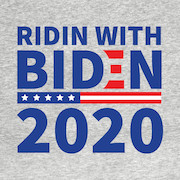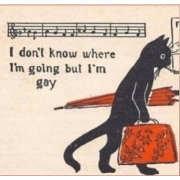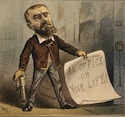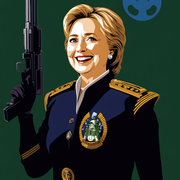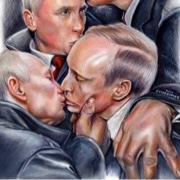|
GreyjoyBastard posted:i should probably read up on zimbabwe then Yeah, it is depressing and a possible view of how this plays out in Venezuela. You have the charismatic liberation leader, deep seated inequality which needed to be addressed and resolved, but the solution for which ultimately get botched, the economic meltdown that follows etc. A difference is that Mugabe was his own Maduro as his mental faculties declined. The other that this all played out in Africa so US interest was minimal and since he Mugabe was not a leftist firebrand in the Chavez mold the tankies didn't give a poo poo about it either. If Venezuela follows the Zimbabwe playbook you'll have Lopez or Cabello shunting Maduro aside once he is too discredited to be of any use any more. Squalid posted:http://www.offnews.info/downloads/CorralesPenfoldJODApril%202007pp%2099-113.pdf Interesting post and article. Note that the US is in serious danger of falling into the same trap with the Republican's hardball tactics turning every election into a high stakes contest where the loser gets totally shut out and their constituents ignored. They are also enthusiastically undermining the US' institutions. Munin fucked around with this message at 01:20 on Feb 3, 2019 |
|
|
|

|
| # ? May 22, 2024 05:35 |
|
I sorta get the whole ‘devil you know’ theory, but when the devil you know is a dictator who is robbing his country while it starves....
|
|
|
|
Munin posted:Yeah, it is depressing and a possible view of how this plays out in Venezuela. You have the charismatic liberation leader, deep seated inequality which needed to be addressed and resolved, but the solution for which ultimately get botched, the economic meltdown that follows etc. A difference is that Mugabe was his own Maduro as his mental faculties declined. The other that this all played out in Africa so US interest was minimal and since he Mugabe was not a leftist firebrand in the Chavez mode the tankies didn't give a poo poo about his either. Yeah when people start playing constitutional hardball its always dangerous, but that risk is heavily mitigated by many speed bumps that make it difficult for any group to monopolize power for long. It is extremely difficult for any political party to suddenly win big majorities In the Senate for example, as even in a wave year only 1/3 of them are up for reelection. The two, four, six year term lengths for Congresspeople, the President, and Senate also increase the odds that different elected bodies will be in opposition, as the political forces bringing each body into power will differ. Venezuela under Chavez has only had one legislative assembly. It's hard for Federal leaders to manipulate voting rules in their favor the way the PSUV does, because those rules are set at the state level. While some Democrats are starting to talk about packing the Supreme Court, Chavez did that years ago in Venezuela, and the courts have essentially ceased to be independent of the executive. I remember reading some stuff by political theorists that Presidential systems are inherently unstable and vulnerable to exploitation. Its possible the United States has only avoided a crisis like that ongoing in Venezuela through blind luck, and that luck must eventually run out. Regardless, if I were Venezuelan I'd at least want the constituent assembly to consider creating a parliamentary constitution. Squalid fucked around with this message at 23:10 on Feb 2, 2019 |
|
|
|
Squalid posted:Yeah when people start playing constitutional hardball its always dangerous, but that risk is heavily mitigated by many speed bumps that make it difficult for any group to monopolize power for long. It is extremely difficult for any political party to suddenly win all elected officers for example, as even in a wave year only 1/3 of the Senate is up for reelection anyway. The next few years will be pretty critical in the US. A lot depends on how the Democrats do once they have power and whether the Republicans ever end up bowing to the need to broaden their coalition. Venezuela wise moving away from a presidential system would be a sound move in my opinion. They have their own problems, the need to form a government of multiple parties can lead to gridlock and stagnation for one. In a lot of Europe the respective main center left and center right parties have ended up in power in many countries preventing a change in political direction through electoral means and empowering the political fringes since they are the only ones offering an alternative to the status quo. See the AfD (and more salubriously the Greens) in Germany and the Sweden Democrats in Sweden. Belgium was left without a government for well over a year due to a gridlock in post election negotiations between parties.
|
|
|
|
What role do media systems and regulations play in this as well? Maduro/regime control over state and regional media companies seems to be a significant factor in his staying power. Media system control by the state, or by powerful factions, is a common issue in societal harm across the world. How can the situation be at least improved in Venezuela, even if it's not totally resolved? edit: vvv case in point, I mean come on Discendo Vox fucked around with this message at 23:40 on Feb 2, 2019 |
|
|
|
teleSur has posted a tweet claiming opposition protestors have pulled down a Venezuelan flag to raise a US one in it's place. https://twitter.com/telesurenglish/status/1091802563962298368
|
|
|
|
Furia posted:Oh, it’s this line again. Wonderful. How are you this uninformed about the opposition party?
|
|
|
|
https://twitter.com/alinecpiva/status/1091751425066049536
|
|
|
|
Judakel posted:How are you this uninformed about the opposition party? Pretty amazing how you don't even understand that there are multiple opposition parties in Venezuela. Whatever source is telling you there's only one, that might be responsible for your utterly wrong ideas of the country.
|
|
|
|
lol fishmech (USER WAS PUT ON PROBATION FOR THIS POST)
|
|
|
|
https://twitter.com/dannylecuna/status/1091840704471539712
|
|
|
|
Discendo Vox posted:What role do media systems and regulations play in this as well? Maduro/regime control over state and regional media companies seems to be a significant factor in his staying power. Media system control by the state, or by powerful factions, is a common issue in societal harm across the world. How can the situation be at least improved in Venezuela, even if it's not totally resolved? Telecommunications in Venezuela are regulated by CONATEL, which is an important pillar in keeping up the regime. CONATEL has the power to take stations off the air at will, which is why we can't say that there is free media in Venezuela. Even if an outlet is nominally independent from the state, it has to adhere to the regime's strict broadcasting limitations or possibly face shutdown. The most common example of the kind of control that the regime has over airwaves is the cadena, which I think many in the thread will be familiar with. CONATEL has the power to force every broadcaster in Venezuela to interrupt its programming to show regime-sanctioned programming for as long as it wants. This is precisely why the regime holds protests at the same day and time as the opposition: so that it can order every television network in the country to show its event, preventing them from showing the opposition one. That's what happened today and that's what's been happening for years. This has forced journalists and media outlets to go online, and it's why we've gotten awesome sites like El Pitazo, Efecto Cocuyo and Armando.info. However, the regime is well aware of this and is actively targeting internet traffic now in order to try to control what Venezuelans see and hear on there as well. EDIT: I'm always interested in seeing protest videos from places other than the usual suspects (Valencia, Caracas, etc). This one's from a city called Upata in Bolivar state: https://twitter.com/AmericoDeGrazia/status/1091819497764335616
|
|
|
|
fnox posted:You don't actually know this. This is just conjecture, based on a loose interpretation of what's happening in Venezuela. You don't know what's going to actually happen. I don't either, but I'll take my chances. I'd rather try anything, than let Maduro rule. Not surprised someone privileged enough to not realize that there is poverty in Europe would take a position like this. What's the risk involved for you while you sit in Europe? It easy to talk about how the risk is worth the cost when you'll personally benefit and it's not you with the Elliot Abrams sledgehammer of friendship hanging precipitously close to your head
|
|
|
|
Nice cherry picking?
|
|
|
|
I forgot to point out that Maduro said again today that he was considering moving the parliamentary elections that are scheduled for 2020 to this year because the National Assembly is in "crisis". I doubt that Maduro would go ahead with this because it would be like kicking a hornet's next. After straight up making up the number of votes in the 2017 Constituent Assembly election, there is no way that the regime would allow itself to lose that vote.
|
|
|
|
A Typical Goon posted:Not surprised someone privileged enough to not realize that there is poverty in Europe would take a position like this. Dude, the situation in Venezuela is far beyond poverty in terms of 'Person does not have enough money to buy food'. The situation has reached 'there is no food to buy at all unless you wait in line for a store to restock or have government connections.' People with steady jobs are not able to buy sufficient food at all. The only thing easy to get in stores are the condiments.
|
|
|
|
Acebuckeye13 posted:Also, Kurnugia, because you and others seem to be badly misunderstanding the root causes of the crisis, here's some info. This is a fantastic summary. I recommend any lurker wondering "why Venezuela is so messed up?" to read this.
|
|
|
|
ChaseSP posted:teleSur has posted a tweet claiming opposition protestors have pulled down a Venezuelan flag to raise a US one in it's place. https://twitter.com/telesurenglish/status/1091802563962298368 Why is that shocking when the opposition are pledging allegiance to israel and the US: https://twitter.com/telesurenglish/status/1091805966629244929
|
|
|
|
just apropos nothing giant israeli flag huh
|
|
|
|
how will ending price controls on food help the famine? even if businesses start selling food, the rising prices combined with hyperinflation and the rise in unemployment will ensure that the poor cannot buy the food on the shelves. this is exactly what happened in russia after the collapse of the ussr; the removal of price controls on food made it profitable for stores to put food on the shelves, but the prices were simply unaffordable for normal russians. the policy of ending food price controls was a failure, and they were re-instituted less than a year after they were reintroduced. this isn't coming from some tankie source. take a peek at this overly long document that one of the neo-liberal architects of privitization wrote about what happened in russia's economic transition [mostly to absolve himself of any responsiblity]. http://jeffsachs.org/2012/03/what-i-did-in-russia/ quote:I fully understand from the start that the reform task would be vastly more difficult and complex than in Poland. There were several critical and quite obvious reasons for this concern: these are all problems that are present to a much greater extent in venezuela now than they were in russia in the early 90s. among the decisions that sachs identifies as leading to the failure of the shock doctrine in russia are: lack of western financial aid/debt restructuring, cutting the social safety net, and privatization of oil companies. no debt forgiveness is going to come from wall street, and the us's proposed food aid of $20 million is effectively no aid. guaido already plans to privatize PDVSA, and will almost certainly cut the chavez era social reforms. i'm not putting words in this economist's mouth. here is a piece he just wrote about venezuela, in which he calls for a power-sharing agreement between maduro and guiado that could lead to an end to us sanctions. https://www.cnn.com/2019/01/26/opinions/heres-how-venezuela-can-achieve-a-peaceful-resolution-to-the-crisis-sachs/index.html quote:US instead appears to be aiming for regime change and tightening sanctions to bring Maduro to his knees. Such an outcome is perhaps feasible, though it would leave a very bitter legacy. More likely, though, it would occasion further violence and an escalation of the economic crisis, possibly leading to war. this isn't exactly a ringing endorsement of the us's regime change policy, nor an endorsement of guaido's policies. he doesn't mention privatization a single time as a way to improve the food crisis.
|
|
|
|
GoluboiOgon posted:how will ending price controls on food help the famine? even if businesses start selling food, the rising prices combined with hyperinflation and the rise in unemployment will ensure that the poor cannot buy the food on the shelves. this is exactly what happened in russia after the collapse of the ussr; the removal of price controls on food made it profitable for stores to put food on the shelves, but the prices were simply unaffordable for normal russians. the policy of ending food price controls was a failure, and they were re-instituted less than a year after they were reintroduced. What policies do you believe would reverse the decline in the Venezuelan economy? Also what social reforms do you believe will receive cuts? I'm no economist so I don't have strong feelings about how best to fix the immediate and long-term issues. Obviously these are complicated issues and there are no easy outs. Whenever the issue of the gas subsides have come up itt for example, which originated before Chavez and are obviously terrible and wasteful policy, the Venezuelan opposition have become extremely anxious. Cutting it would mean immediate cost of living increases for everyone. However its not as if they aren't still paying the real cost, even if it appears free at the pump. They pay for that gas by having fewer state resources elsewhere. So what do you do? Do you institute gradual price increases towards the real price? Substitute it for a straight cash payment to the poor? Or do you go the Shock Doctrine route and dump it all at once? Unfortunately when someone spends two decades destroying a country, it leaves one with nothing but hard choices.
|
|
|
|
Squalid posted:What policies do you believe would reverse the decline in the Venezuelan economy? Also what social reforms do you believe will receive cuts? as long as the price of oil remains low, venezuela won't be able to recover; almost all of their revenue comes from oil. they direly need to diversify their economy, both to stabilize their economy from future oil price fluctuations and to do something about the unemployment rate. this requires capital investments that simply won't happen with the sanctions in place. if maduro leaves power, the sanctions go away but the us will demand that the oil profits go towards debt repayment, so there will still be very little money to reinvest in new industries, even after deep cuts to government spending. financial recovery would require money that isn't in venezuela now, can't be acquired with the price of oil so low, and will not be given by western aid groups. i don't think that any sort of economic recovery is likely, or that the hunger will end anytime soon.
|
|
|
|
GoluboiOgon posted:how will ending price controls on food help the famine? even if businesses start selling food, the rising prices combined with hyperinflation and the rise in unemployment will ensure that the poor cannot buy the food on the shelves. this is exactly what happened in russia after the collapse of the ussr; the removal of price controls on food made it profitable for stores to put food on the shelves, but the prices were simply unaffordable for normal russians. the policy of ending food price controls was a failure, and they were re-instituted less than a year after they were reintroduced. By the way, nothing about the failed transition in the USSR is at all controversial in the economics community. I literally learned a chapter about "the failure of transition in the USSR" in one of my undergrad courses related to institutional economics. In addition, people downright hate guys like Andrei Shleifer, who had a hand in advising the transition period and basically used privatization to get rich. The basic tenet is that even if there are no additional problems, you can not just install new institutions in a country just bc they work elsewhere. This is literally undisputed academically at this point (it is also obvious). Basically, a working and workable price system is the goal, but how to get there depends strongly on Venezuela. But Venezuela certainly has a lot of additional problems. Like inflation. This can all be tackled, but it's a complex, interdependent set of issues, each of which are difficult (but not impossible) to deal with by themselves. So on the one hand, I would except no advisor or organization today to walz into Venezuela and just get rid of price controls, or anything really, willy nilly. On the other hand, I say that, but you know, people like Andrei Shleifer exist.
|
|
|
|
Would it work if the government/external groups paid food producers the difference between the market price of food, and the price-controlled price of food? That way they'd have incentive to produce, and food wouldn't immediately become super expensive. Obviously it's not a strategy that's sustainable in the long term, but it seems like it would help stabilize things in the short term without having people starve because they can't afford food.
|
|
|
|
CAPS LOCK BROKEN posted:Why is that shocking when the opposition are pledging allegiance to israel and the US: turns out a starving populace appreciates hard truths, support, and pretty obvious answers to their plight rather than hand wringing, what if's, and an extreme minority support in failed governement system that can't keep a loaf of bread on the shelf.
|
|
|
|
PT6A posted:Would it work if the government/external groups paid food producers the difference between the market price of food, and the price-controlled price of food? That way they'd have incentive to produce, and food wouldn't immediately become super expensive. Obviously it's not a strategy that's sustainable in the long term, but it seems like it would help stabilize things in the short term without having people starve because they can't afford food. Hell, there was an available strategy for the past few years to prevent his people from starving, accept international aid. Food is incredibly cheap in most of the world (compared to Venezuela) , and they offered to send millions of pounds of food to the country. Maduro might have damaged a lot of those relationships by being an arrogant jackass about aid for many years though.
|
|
|
|
PT6A posted:Would it work if the government/external groups paid food producers the difference between the market price of food, and the price-controlled price of food? That way they'd have incentive to produce, and food wouldn't immediately become super expensive. Obviously it's not a strategy that's sustainable in the long term, but it seems like it would help stabilize things in the short term without having people starve because they can't afford food. venezuela doesn't produce enough of its own food for subsidies to end hunger. chavez should have focused much more heavily on growing the agricultural industry to the point that venezuela wasn't dependent on imports the second that he decided to challenge the us.
|
|
|
|
caps on caps on caps posted:By the way, nothing about the failed transition in the USSR is at all controversial in the economics community. I literally learned a chapter about "the failure of transition in the USSR" in one of my undergrad courses related to institutional economics. At the same time, removing the (relatively recent) systems that seem to have been major components of the current crisis sounds like a fantastic idea. Venezuela is still in the throes of failing to transition to a command economy and I'm pretty sure doubling down on that in the short term is a bad idea - even if they choose to go that direction in the long term. Warbadger fucked around with this message at 16:45 on Feb 3, 2019 |
|
|
|
CAPS LOCK BROKEN posted:Why is that shocking when the opposition are pledging allegiance to israel and the US: They weren't "pledging allegiance" to the Israeli and US. That's and absurd thing to say. At one point during the event in Las Mercedes yesterday, they showed the flags of every country that has recognized Guaido as interim president. People were cheering for the flags to show appreciation for those countries' support. I won't post them all, but here's a couple of screenshots. You can see for yourself in this video (around the 30:00 mark). Australia:  Canada:  El Salvador:  Albania:  Why would TeleSur deliberately single out the Israeli and US flags and present the images without any kind of context?  Propaganda: "information, ideas, or rumors deliberately spread widely to help or harm a person, group, movement, institution, nation, etc.; the deliberate spreading of such information, rumors, etc."
|
|
|
|
PT6A posted:Would it work if the government/external groups paid food producers the difference between the market price of food, and the price-controlled price of food? That way they'd have incentive to produce, and food wouldn't immediately become super expensive. Obviously it's not a strategy that's sustainable in the long term, but it seems like it would help stabilize things in the short term without having people starve because they can't afford food. The question for me would be at what point do you stop the subsidies?
|
|
|
|
The EU parliament recognizes him as well.
|
|
|
|
Mnoba posted:turns out a starving populace appreciates hard truths, support, and pretty obvious answers to their plight rather than hand wringing, what if's, and an extreme minority support in failed governement system that can't keep a loaf of bread on the shelf. lolllllll yeah that's what Trump and Bolsanaro care about. They're certainly not going to exploit this situation and gently caress Venezuela for a lifetime.
|
|
|
|
Regarde Aduck posted:lolllllll yeah that's what Trump and Bolsanaro care about. They're certainly not going to exploit this situation and gently caress Venezuela for a lifetime. Trump and Bolsanaro being utter fuckshits doesn't make Maduro any less of a fuckshit.
|
|
|
|
I remember this video being shared in this thread before, so thought it would be proper to also share this. https://twitter.com/ConflictsW/status/1092099766606090240
|
|
|
|
PT6A posted:Would it work if the government/external groups paid food producers the difference between the market price of food, and the price-controlled price of food? That way they'd have incentive to produce, and food wouldn't immediately become super expensive. Obviously it's not a strategy that's sustainable in the long term, but it seems like it would help stabilize things in the short term without having people starve because they can't afford food. nobody has picked on the problem here so I will chip in, it was discussed way back earlier in the thread the problem is that there is no apolitical civil service and logistical system that can be trusted to execute such a mandate - any reliance on them exposes Chavismo to dissident strikes by middle-class trade unions, as indeed seriously threatened Chavez at one point. A complicated scheme to enforce different prices for producers and distributors would certainly qualify. Food rationing in an otherwise-market society requires the cooperation of too many elements of society. The veto points represented by any complicated bureaucracy, and the fervent opposition of the social classes that would make it up, rule out the kind of technocratic thinking more common in the developed world instead, most Venezuelan food is imported, so US dollar rationing to critical import industries is relatively simple and requires less trust. Instead, one has different exchange rates for different sectors of the economy. You can ask the Venegoons about the proliferation of hard currency policies over time. this implicitly means that too much domestic involvement in food production, processing, and supply is itself a threat to the system underpinning the way food is subsidized at the till, which perhaps explains why the Chavez government did not quite like Empresas Polar. regardless, in this way the Venezuelan government is paying the petrodollar-denominated market price of food and is subsidizing the domestically-denominated domestic price of food. Albeit - now with hyperinflation - with increasingly less and less control. Still, it took more than a decade for the accelerating hyperinflation to really bite, and as a lot of tankies herein like to point out, the long run is a damned far place for someone starving in the now. ronya fucked around with this message at 18:13 on Feb 3, 2019 |
|
|
|
Mozi posted:I remember this video being shared in this thread before, so thought it would be proper to also share this. It'd be difficult for those to be Marines in any case, as those appear to be Blackhawks and the Marines still use Hueys for... reasons.
|
|
|
|
Galaxy brain: Maduro has showed his commitment to democratic humanitarianism by not literally running over protesters with tanks. https://www.reddit.com/r/ChapoTrapHouse/comments/amm7bq/a_thought_about_venezuelan_protests/
|
|
|
|
Given that the Police and National Guard repressed plenty of protests before, there's a more likely explanation. https://twitter.com/Perez1oj/status/1092102780909744128
|
|
|
|
Gen. Ripper posted:Galaxy brain: Maduro has showed his commitment to democratic humanitarianism by not literally running over protesters with tanks. is that al-Saqr from here?
|
|
|
|

|
| # ? May 22, 2024 05:35 |
|
Gen. Ripper posted:Galaxy brain: Maduro has showed his commitment to democratic humanitarianism by not literally running over protesters with tanks. I mean yeah nothing in this strikes me as particularly controversial. In terms of its coercive apparatus Venezuela is a long ways away from what exists in the Presidential dictatorships and Monarchies of the Arab world. Its also dramatically less repressive than the Latin American military dictatorships of the mid to late 20th century. That is not saying much but its still true.
|
|
|



